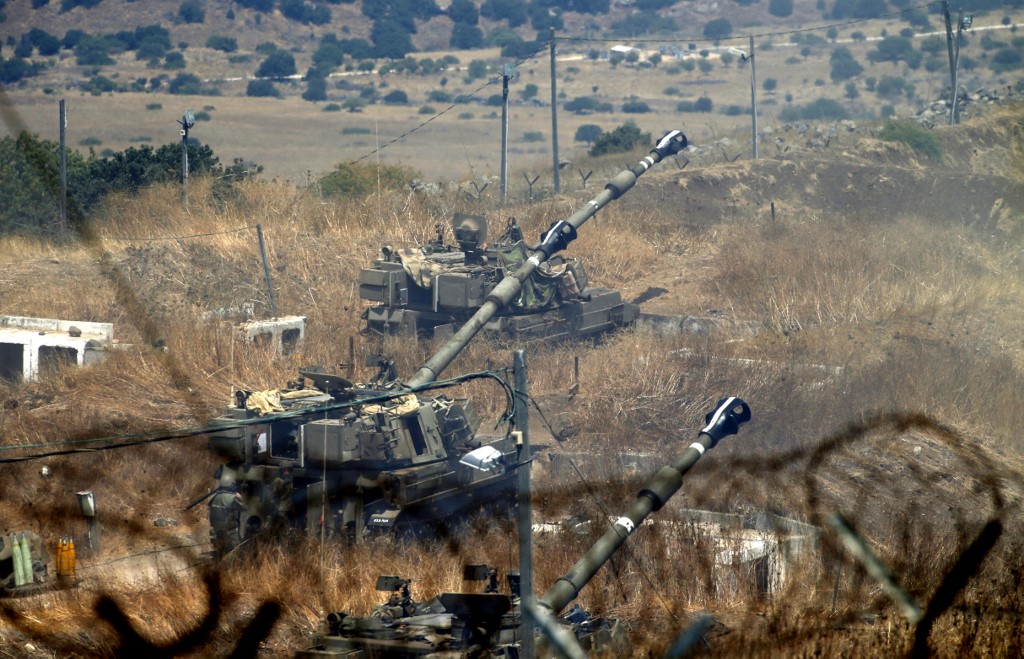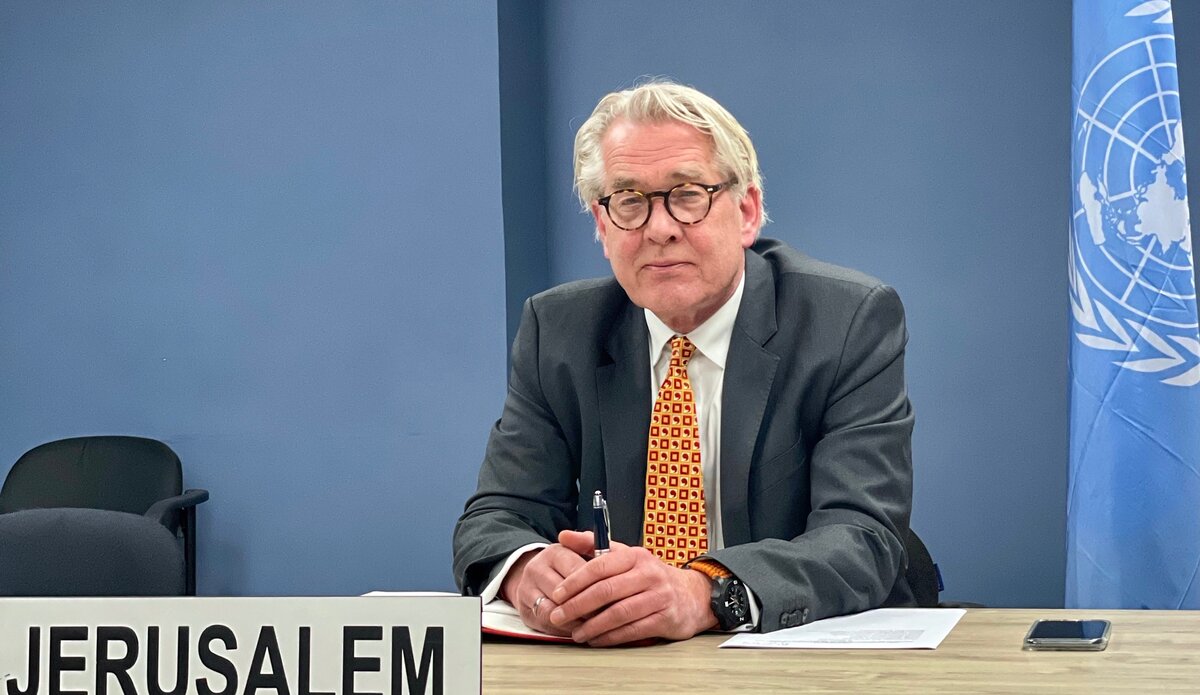UNITED NATIONS — The UN Middle East envoy on Thursday warned of tensions in South Lebanon, as Israel and the Hezbollah terror group exchanged threats over a disputed offshore gas field.
Tor Wennesland, the UN’s special coordinator for the Middle East peace process, told the Security Council at a regular briefing that “heightened tensions persisted” in the South Lebanon border area administered by the United Nations Interim Force in Lebanon (UNIFIL).
At least four firing ranges have been observed in regular use in the area in recent months, in “blatant violation” of UN Resolution 1701, which stopped the 2006 war between Israel and Hezbollah, he said.
Wennesland said there had been a “rising number of incidents” restricting UNIFIL’s freedom of movement, which he said was critical for implementing the peace agreement.
The nature of the firing ranges and the incidents restricting UN movement were not clear, but Hezbollah controls the border area inside southern Lebanon. A UN spokesperson said he did not immediately have further information.
Wennesland also said “regular and ongoing violations of Lebanese airspace by Israel also remain of concern,” and were violations of Resolution 1701.
Hezbollah leader Sheik Hassan Nasrallah speaks via a video link, as his supporters raise their hands, during the Shiite holy day of Ashura, in the southern suburb of Beirut, Lebanon, August 9, 2022. (AP Photo/Hussein Malla)
The warning came as Israel and Hezbollah threatened each other over a disputed gas field in the Mediterranean Sea.
Israel and Lebanon have been engaged for over a year in rare US-brokered talks aimed at resolving a dispute over rights to offshore fields thought to hold riches of natural gas, and the sides are said to be nearing an agreement.
Both countries claim some 860 square kilometers (330 square miles) of the Mediterranean Sea. Lebanon also claims that the Karish gas field is in disputed territory under ongoing maritime border negotiations, while Israel says it lies within its internationally recognized economic waters.
Hezbollah has upped its rhetoric in recent months as Israel and Lebanon have engaged in talks. It remains vociferously opposed to any concessions with Israel. Tensions spiked in June when a production vessel chartered by Israel arrived near the Karish offshore gas field.
Hezbollah chief Hassan Nasrallah has consistently threatened to target Israeli offshore installations. In July, the IDF said it downed three unarmed Hezbollah drones launched at a gas rig in Karish.
On Monday, Defense Minister Benny Gantz warned Hezbollah that any attack on its gas assets could spark war, after the terror group threatened to “sever” Israel’s hands if it taps the disputed offshore field.
Gantz’s warning came after reports saying Israel’s security forces were on high alert near the northern border amid fears Hezbollah could attack in order to sabotage the negotiations.

Israeli self-propelled howitzers take position towards Lebanon near the northern Israeli town of Kiryat Shmona on August 6, 2021. (Jalaa Marey/AFP)
The dispute over the maritime border is more than a decade old. In 2012, Lebanon rejected an American proposal to receive 550 square kilometers (212 square miles), or almost two-thirds of the area, while Israel would have received the remaining third.
Lebanon and Israel last fought a war in 2006, have no diplomatic relations, and are separated by the UN-patrolled ceasefire line.
Lebanon badly needs an agreement over the maritime border in the Mediterranean as it hopes to exploit offshore gas reserves to try to alleviate what has become the worst economic crisis in its modern history.
“In Lebanon, lack of progress with reforms, deadlock of government formation, and increasing strain on institutions, including Lebanese armed and security forces, continue to weigh heavily on state authority,” Wennesland said.

UN Special Coordinator for the Middle East Peace Process Tor Wennesland briefs, over video conference, the Security Council on the Situation in the Middle East, including the Palestinian question on January 26, 2021. (Daniela Penkova/UNSCO/File)
Most of Wennesland’s Thursday Security Council briefing focused on the brief conflict between Israel and the Islamic Jihad terror group in Gaza last month. He criticized both sides for their conduct during the fighting, and praised the ceasefire for ending the violence, but said “the underlying drivers of the conflict are still unresolved.”
He said deadly explosions in Gaza that Israel blamed on failed rocket launches have “yet to be verified” and expressed concern over Israeli airstrikes in densely populated areas that caused casualties.
“Israel must abide by its obligations under international humanitarian law, including the proportional use of force and taking all feasible precautions to spare civilians and civilian objects,” he said.
He condemned “the indiscriminate launching of rockets by Palestinian armed groups from highly populated neighborhoods in Gaza into civilian populated centers in Israel,” which he said violated international humanitarian law.
Hezbollah chief Nasrallah met with Palestinian Islamic Jihad leader Ziyad Nakhaleh in Lebanon on Wednesday to discuss regional developments.
Wennesland also expressed concern over West Bank violence, Israeli home demolitions and settlements, calling the communities illegal and a “substantial obstacle to peace.”
